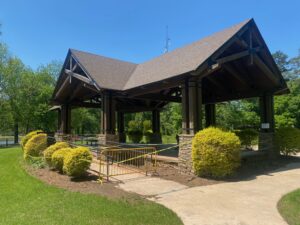After Thursday’s public hearing on the city’s $27.7 million budget, the Peachtree City Council undertook a series of actions designed mostly to improve the budget outlook in future years.
By the time all the changes are considered, it will reduce the need for a proposed 1.1 mill property tax increase next year, according to Councilman Eric Imker.
The city agreed to use $779,000 in cash reserves to payoff a bond issued in 2006 to payoff a settlement reached in lawsuits between the city, a bank and two contractors stemming from improvements made to the city’s tennis center.
Doing so will save some $58,444 in interest payments and also will negate the need for previously-budgeted loan payments of approximately $143,000 for the next five fiscal years to pay off the loan.
The plan was hatched after city staff asked a consultant to review all its existing debt for potential savings. The DAPC loan had one of the highest interest rates at 5.93 percent.
Imker proposed a number of changes to the city’s pending 2011-2012 budget as well as in future years. None of them are set in stone, as the city is set to formally adopt the budget at its Aug. 4 council meeting.
Most of Imker’s changes were accepted by consensus, but Mayor Don Haddix said he opposed reducing the city’s local option sales tax contingency from $500,000 to $250,000.
Haddix said the city still doesn’t know for sure how big a hit it will take in the LOST renegotiations with the county. Imker contended that in a worst-case scenario, the city will only lose $250,000 due to the city’s percentage of the county’s entire population shrinking a bit in the 2010 Census.
Haddix noted that the LOST negotiations also factor in service levels, creating another variable for the city.
Councilwoman Vanessa Fleisch said she was concerned about Imker’s proposal to reduce the overall department operating budgets by $100,000, because she felt it should come from the larger departments.
Haddix said he had a problem with reducing the police vehicles purchased from 10 to 9. Police Chief H.C. “Skip” Clark noted that the city has a vehicle replacement plan for the vehicles to make sure they are reliable when needed for emergency service.
“We’re replacing 2003 cars that will almost be 11 years old when we replace them,” Clark said. “We’ve gotten every bit of life out of them for police work.”
Clark noted that patrol cars, once they can no longer be used for patrols, are reassigned to other city divisions such as public works and code enforcement.
Imker, who suggested the change, noted that the extra vehicle could be added back to the budget at the council’s Aug. 4 meeting in which the budget is expected to be adopted.
Councilwoman Kim Learnard asked city staff if Councilman Doug Sturbaum, who was absent from the meeting due to a family illness, had turned in his list of proposed budget cuts yet. City Manager Jim Pennington said he has not yet seen that list.
The discussion also featured a bit of saber-rattling between Haddix and Learnard. After Learnard said the city had a budget plan, Haddix said he preferred to call it a “budget guess.”
The two have philosophical differences about the value of projecting city budget impacts out for future years, as staff has done annually with its five-year budget projections.
Imker showed a revised five year projection based on Haddix’s advocating last year for a .5 mill increase instead of the 1.25 mills ultimately approved by council. The figures showed that the city within a few years would start dipping into its cash reserves to go well beyond the level equivalent to 20 percent of the budget, a benchmark recommended as part of the city’s financial policies.
The city currently has cash reserves equivalent to 37 percent of its budget, and over the next few years the plan is to spend down those reserves to the recommended 20 percent level.










Leave a Comment
You must be logged in to post a comment.